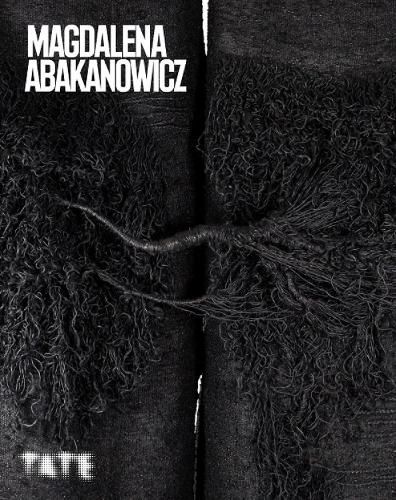Readings Newsletter
Become a Readings Member to make your shopping experience even easier.
Sign in or sign up for free!
You’re not far away from qualifying for FREE standard shipping within Australia
You’ve qualified for FREE standard shipping within Australia
The cart is loading…






Magdalena Abakanowicz (b.1930-2017) was a Polish sculptor and fibre artist, most notable for her use of textiles as a sculptural medium. In the 1960s and 1970s she wove sisal in intense colours to create towering, hanging pieces that radically expanded the field of sculpture and installation art, and catapulted the international ‘fiber art’ movement. Known as ‘Abakans’, these ‘organic environments’ carried many meanings and were often large in size, containing entanglements of ropes or dividing spaces. They were spaces to contemplate, to immerse oneself in, to experience.
Lavishly illustrated with immersive photography and stunning details, this beautiful book explores the unique nature of these monumental works and their impact as environmental sculpture. Considering the relationships between the Abakans with their forest-like atmosphere, and other key works, it reveals the artist’s broad interest in natural phenomena and folk-art traditions from different cultural backgrounds, and the mastery and determination of a woman artist who, despite the restrictions of living in Poland under an oppressive Communist regime, established a career as an international artist. Drawing on themes such as shamanism, female energy and power, pregnancy and insights on human nature, the book highlights Abakanowicz’s pioneering contribution to installation art and the role of collaboration in her practice, and contextualises her work within the Polish art world and wider post-war Europe.
$9.00 standard shipping within Australia
FREE standard shipping within Australia for orders over $100.00
Express & International shipping calculated at checkout
Magdalena Abakanowicz (b.1930-2017) was a Polish sculptor and fibre artist, most notable for her use of textiles as a sculptural medium. In the 1960s and 1970s she wove sisal in intense colours to create towering, hanging pieces that radically expanded the field of sculpture and installation art, and catapulted the international ‘fiber art’ movement. Known as ‘Abakans’, these ‘organic environments’ carried many meanings and were often large in size, containing entanglements of ropes or dividing spaces. They were spaces to contemplate, to immerse oneself in, to experience.
Lavishly illustrated with immersive photography and stunning details, this beautiful book explores the unique nature of these monumental works and their impact as environmental sculpture. Considering the relationships between the Abakans with their forest-like atmosphere, and other key works, it reveals the artist’s broad interest in natural phenomena and folk-art traditions from different cultural backgrounds, and the mastery and determination of a woman artist who, despite the restrictions of living in Poland under an oppressive Communist regime, established a career as an international artist. Drawing on themes such as shamanism, female energy and power, pregnancy and insights on human nature, the book highlights Abakanowicz’s pioneering contribution to installation art and the role of collaboration in her practice, and contextualises her work within the Polish art world and wider post-war Europe.